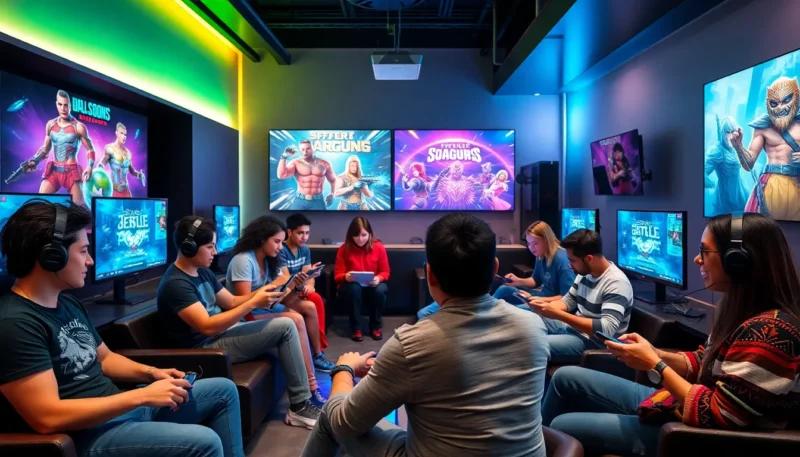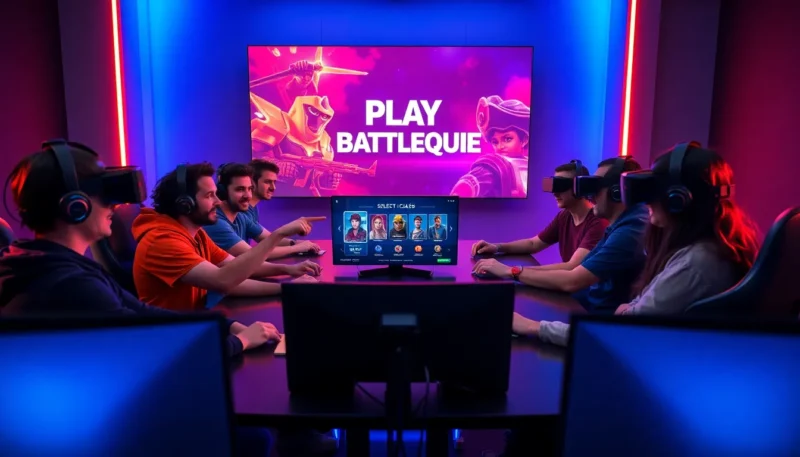Mobile Gaming: How Smartphones Changed the World of Play

Mobile gaming has become one of the fastest-growing sectors in the global entertainment market. With billions of people owning smartphones, the accessibility of games has created an entirely new industry. Unlike traditional console or PC gaming, mobile platforms allow users to play anywhere, at any time, making them one of the most popular forms of digital entertainment.
In the UK, modern payment solutions have made mobile gaming even more convenient. Services like uk-licensed pay by mobile allow players to manage in-game purchases and subscriptions directly through their phone bills, reflecting how financial technology and entertainment are becoming increasingly connected.
Growth of Mobile Gaming Worldwide
The growth of mobile gaming has been extraordinary over the past decade. It has overtaken both console and PC gaming in revenue, primarily because of its accessibility and the rise of free-to-play models supported by in-app purchases.
Key Reasons for Growth:
- Widespread smartphone ownership
- Availability of affordable internet connections
- Development of high-quality mobile processors
- Popularity of app stores offering millions of titles
- Shift toward casual gaming experiences
Global Gaming Market Revenue (2023)
| Platform | Revenue (USD billions) | Market Share |
| Mobile | 92 | 50% |
| Console | 53 | 29% |
| PC | 39 | 21% |
The table shows that mobile games now make up the majority of industry revenue, highlighting their importance to the global gaming economy.
Popular Genres in Mobile Gaming
One of the reasons mobile gaming attracts such a wide audience is the diversity of genres. From casual puzzle titles to competitive multiplayer games, there is something for every type of player.
Leading Mobile Game Genres:
- Puzzle Games: Easy-to-learn, casual, and often free
- Battle Royale: Multiplayer action games like PUBG Mobile and Fortnite
- Sports and Racing: FIFA Mobile, Asphalt series
- Role-Playing Games (RPGs): Genshin Impact, Final Fantasy mobile versions
- Casino and Card Games: Poker, blackjack, and slot apps
- Strategy Games: Clash of Clans, Mobile Legends
Genre Popularity by Player Percentage (UK, 2023)
| Genre | Percentage of Players |
| Puzzle | 35% |
| Action/Battle Royale | 20% |
| Sports & Racing | 15% |
| RPG | 12% |
| Casino & Card | 10% |
| Strategy | 8% |
Puzzle games remain the most popular, especially among casual gamers, while competitive genres like battle royale dominate among younger audiences.
Technology Driving Mobile Gaming
Advancements in mobile hardware and software have allowed games to reach console-quality experiences. Mobile devices now include processors capable of handling complex graphics, while developers use advanced engines like Unity and Unreal for smoother gameplay.
Key Technologies in Mobile Gaming:
- 5G Networks: High-speed, low-latency connectivity for multiplayer games
- Augmented Reality (AR): Games like Pokémon GO revolutionized gameplay by blending real and virtual worlds
- Cloud Gaming: Services like Xbox Cloud Gaming allow players to stream console games directly on mobile
- AI Integration: Smarter NPCs, adaptive difficulty, and personalized recommendations
These technologies are redefining what is possible on small screens, bringing mobile gaming closer to the performance and depth once reserved for consoles.
Mobile Gaming and Social Interaction
Mobile gaming is no longer a solo activity. Many games now include social features that keep players engaged and connected with others.
Examples of Social Features:
- In-Game Chat: Communicating with friends or teammates
- Leaderboards: Competing with global players
- Multiplayer Modes: Cooperative or competitive play
- Social Media Integration: Sharing achievements directly to platforms like Facebook or Twitter
These features have turned mobile games into social hubs where people can compete, collaborate, and interact, often blurring the line between gaming and online communities.
The Future of Mobile Gaming
As mobile technology continues to evolve, the future of mobile gaming looks even more dynamic. Developers are pushing the boundaries of creativity and user experience, while business models adapt to keep players engaged.
Future Predictions for Mobile Gaming:
- Growth of subscription services offering premium titles
- Wider adoption of cloud gaming, removing hardware limitations
- More integration of AR and VR in everyday mobile games
- Increasing influence of artificial intelligence in personalizing content
- Expansion of payment options tailored to mobile users
Looking ahead, mobile gaming is expected to expand its dominance, offering experiences that rival traditional platforms while remaining accessible to a broader audience.
Mobile gaming is not just entertainment; it’s a major driver of technology, social interaction, and economic growth. With innovations in connectivity, payment systems, and game design, the sector is set to continue growing rapidly, attracting players from every demographic.







